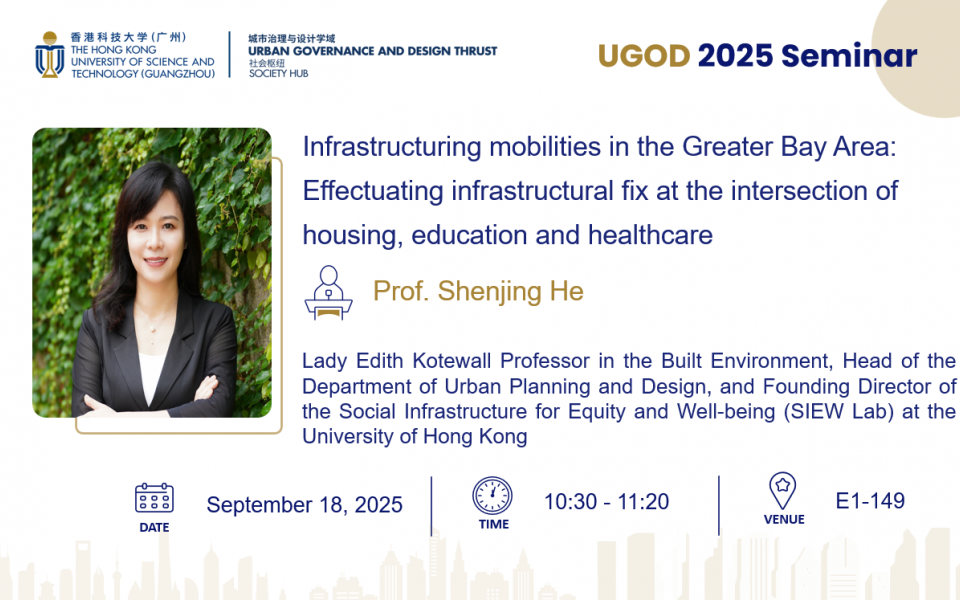UGOD Seminar | Infrastructuring mobilities in the Greater Bay Area: Effectuating infrastructural fix at the intersection of housing, education and healthcare
Supporting the below United Nations Sustainable Development Goals:支持以下聯合國可持續發展目標:支持以下联合国可持续发展目标:
Evolving from the headstream of China’s market-oriented reforms—the Pearl River Delta, the Guangdong–Hong Kong–Macao Greater Bay Area (GBA) emerges as a strategic development area and a super-size extended metropolitan region in Southern China comprising 11 cities and over 86 million population. At the conjuncture of multi-scalar polycrisis—marked by economic downturn, technological rivalry, geopolitical frictions, and pandemic disruptions—the GBA has become a testing ground for an infrastructural fix to reconfigure cross-border regionalism. Regional integration and accelerated mobility are the key emphases of the GBA, which are highly contingent upon infrastructure development of various sorts. Such a strategic infrastructural fix liquidizes the otherwise fixed infrastructure and its substrates to facilitate mobilities within the GBA, initiating a process I called infrastructuring mobility. Among various critical social infrastructures, housing, education and healthcare are of great importance for promoting physical and social mobilities, and thus at the center of the infrastructuring process. I will illustrate how the state-orchestrated institutional innovations and entrepreneurial endeavours under the changing state-capital nexus initiate and facilitate such process of infrastructuring mobility. By illuminating how the politics of mobility—embedded in the technological, discursive and affective governance of infrastructural regionalism—serves as a mode of statecraft that forges cross-boundary connectivity and drives regional integration.
Shenjing He is Lady Edith Kotewall Professor in the Built Environment, Head of the Department of Urban Planning and Design, and Founding Director of the Social Infrastructure for Equity and Well-being (SIEW Lab) at the University of Hong Kong. She has published over 200 papers on topics of urban redevelopment/ gentrification, urban and regional governance, urban-rural interface, housing and well-being, and healthy cities. She was listed Top 1% scholar worldwide ranked by Clarivate Analytics (2016-2024) and World’s Top 2% Scientists by Standford University (2020-2024). Shenjing was awarded the Distinguished Young Scientists Fund (Type A) by the National Natural Science Foundation of China (NSFC) and Humanities and Social Sciences Prestigious Fellowship by the Research Grants Council of Hong Kong SAR Government in 2025. She was elected to be a Fellow of the Academy of Social Sciences (UK) In 2021. Since 2023, she has served as Co-Editor-in-Chief for Area Development and Policy, and from 2012 to 2024 as an editor for Urban Studies. Currently she leads multiple research projects on gated communities and neighbourhood governance, cross-border governance in the Greater Bay Area, rural revitalization and conservation in Hong Kong.
